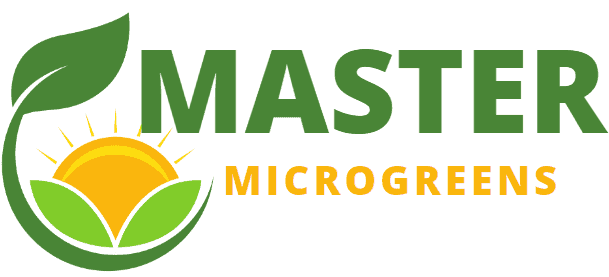When selling microgreens, it is essential to obtain the necessary permits from the appropriate local public health departments or agricultural agencies. These permits ensure compliance with regulations and guarantee the safety and quality of the microgreens being sold.
What You'll Learn
Importance of Obtaining Permits
It’s vital that you get the proper authorization before starting your microgreens business. Failing to do so can lead to fines, legal trouble, and other negative consequences. Here are three key steps you should take when obtaining a permit for selling microgreens:
- Research local laws – Start by researching the relevant laws in your area regarding selling food products such as microgreens. Make sure you understand all of the registration hurdles and zoning restrictions you will need to meet in order to legally sell your product.
- Submit an application – Once you’ve familiarized yourself with the applicable laws, it’s time to submit an application for a permit from the appropriate public health or agricultural agency based on where you live. Depending on where you live, this could involve paperwork, inspections, or both.
- Follow up – After submitting an application, it’s important to follow up with local authorities to make sure everything is processed correctly and in a timely manner. If any additional information is needed or if there are any changes that need to be made, it’s important that these are addressed quickly so as not to delay approval of your permit request any further than necessary.
Obtaining the proper permits before selling microgreens is essential if you want to avoid costly penalties and legal issues down the road. It takes extra effort, but ultimately paying attention to every detail and following all applicable regulations will ensure that your business runs smoothly and within the law at all times. Investing time upfront into understanding what needs to be done can save headaches later on when trying to comply with local regulations surrounding food sales businesses like yours!
Steps to Apply for Permits
Getting the right permits is key to ensuring your microgreens business runs legally and without any issues. To apply for the necessary permits, you must familiarize yourself with licensing requirements in your region, as well as research fee structures or other costs associated with obtaining a permit. Depending on where you live, you may need to contact local public health departments or agricultural agencies for more information about what permits are needed.
The application process for a permit can vary by region, but in general, it involves submitting an application form and providing documentation, such as proof of identity and proof that your premises meet relevant safety standards. You may also need to provide evidence of food safety training or proof of insurance coverage.
Once all documents have been submitted, the agency will review them and determine if you qualify for a permit. In addition to completing the application process, there may be certain fees associated with obtaining a microgreens-selling permit which must be paid before the license is issued. It’s important to understand all regulations around fee structures and payment methods so that you can ensure timely payment of any required fees related to the permit application process.
After applying for the necessary permits and paying applicable fees, it is up to the issuing authority to approve or reject your application depending on their assessment of your qualifications. If approved, they will provide you with a valid license which allows you to legally sell microgreens within your area according to local laws and regulations.
Types of Permits
You’ll be amazed at the different types of permits you might need to obtain in order to get your microgreens business off the ground! Depending on your region, you may need to apply for licenses and permits from local public health departments or agricultural agencies.
Some examples of these requirements include licensing requirements, regulatory guidelines, food safety certifications, and business registration certificates.
These requirements vary depending on where you live. For example, if you plan to sell your microgreens products online, you’ll likely need a specific type of business license. Other regulations that may apply include food labeling laws and other quality assurance protocols. Additionally, some states require farmers market vendors to have special permits to participate in these events.
It’s important to understand all of the applicable licensing requirements and regulatory guidelines before launching your microgreen business. This way, you can ensure that everything is done properly and legally from day one! It’s also wise to contact the relevant government agencies in your area and ask questions if there are any areas that remain unclear.
Doing this upfront research can save time and hassle down the road when it comes time to actually apply for permits and licenses.
Benefits of Obtaining Permits
Having the right permits in place can open up a world of opportunities for your microgreen business! Obtaining the necessary permit to sell microgreens is an important step to ensure that you’re abiding by local regulations and agricultural laws. It’ll help protect your business from potential problems and allow you to operate legally.
Having the correct permits also provides assurance that customers are purchasing products that have been grown, handled, stored, and transported safely. Obtaining a permit will also help establish credibility for your business among customers. When customers see that you’ve obtained all of the necessary permits, it demonstrates that you take safety seriously and care about the quality of your products. This can lead to more trust in your business, which helps build customer loyalty and potentially increase profits.
In addition to increasing customer trust, having a valid permit shows potential customers that your business is legitimate and reliable. A permit serves as proof of compliance with relevant regulations and laws, which demonstrates professionalism and legitimacy in the eyes of many consumers. By obtaining a valid permit for selling microgreens, you’re likely to attract more customers who value quality products produced under legal conditions.
Finally, obtaining a valid permit will enable you to access resources such as grants or other forms of funding available only to businesses with appropriate licenses or permits. Obtaining these resources can help reduce operational costs while allowing you to expand operations or invest in new technologies or equipment needed for success. With the right permits in place, there’s no limit on what your microgreens business can achieve!





